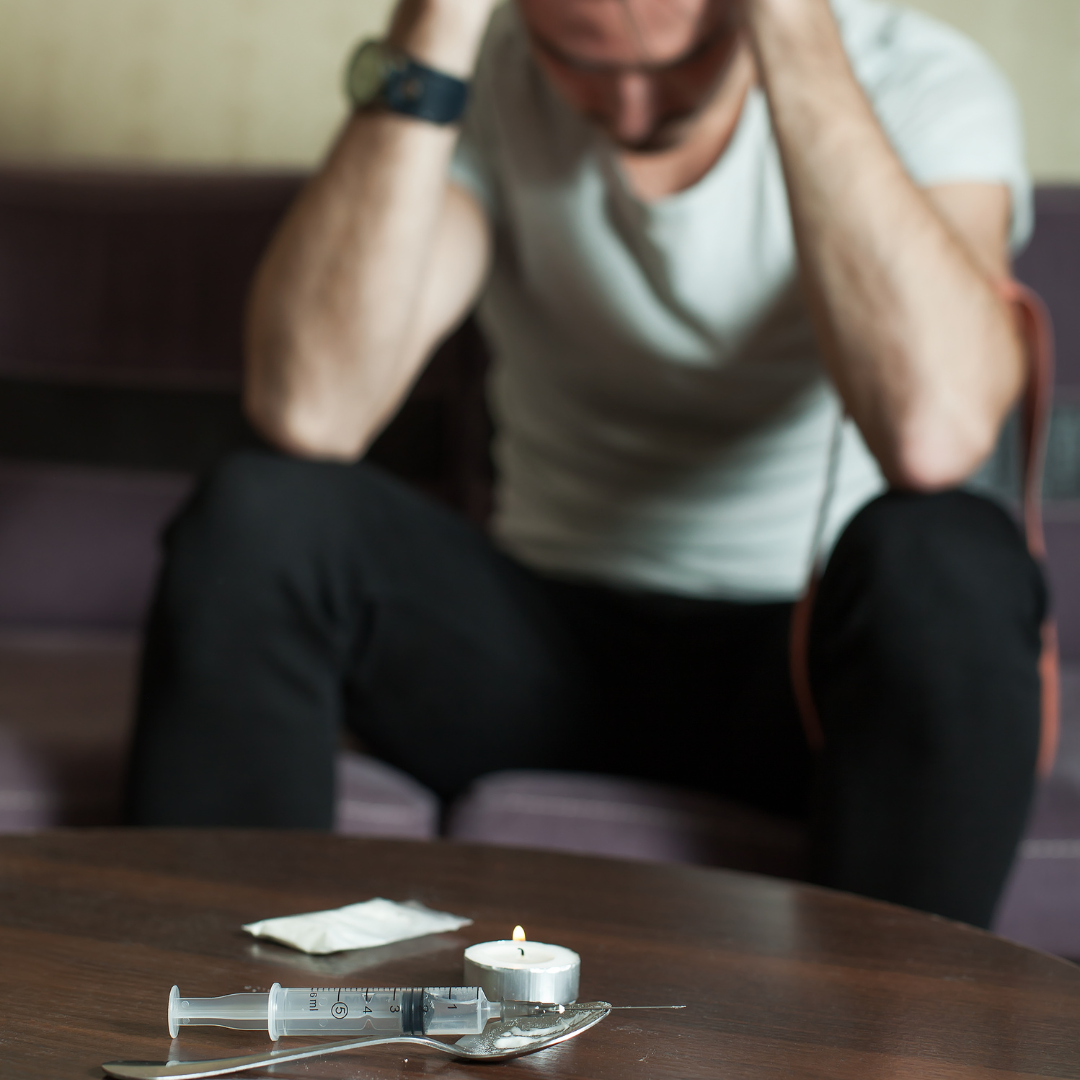Health is an essential part of life and can be hard to maintain. The challenge of living healthily can sometimes be overwhelming, especially if we have certain drug addictions that have taken control of our lives. This article explores the dangers of drug addiction, how prevention is vital in keeping ourselves safe from an overdose, and the long-term effects of addiction.
What is a Drug Overdose?
Drug overdoses are a severe problem in the United States. Every day, somewhere in America, an overdose kills someone. And drug overdoses are on the rise. In 2017, there were more than 64,000 drug overdose deaths in the US – an increase of more than 20% from 2016.
Many different types of drugs can lead to a drug overdose. The most common medications that cause overdoses include opioids (such as prescription painkillers and heroin), cocaine, and synthetic drugs (like fentanyl).
Overdose symptoms can vary depending on which type of drug is causing the overdose. But usually, drug overdoses will cause:
- Nausea and vomiting
- Blurred vision
- Dizziness or lightheadedness
- Cold sweats or hot flashes
- Rapid heartbeat and shallow breathing
- Seizures
- Coma or death.
If we or someone we know is experiencing any of these symptoms after taking drugs, get help immediately.
The Dangers of Drug Addiction
Addiction to drugs can be a very dangerous and life-threatening affliction. Drug addicts often become so dependent on their drug of choice that they will do anything to keep using it, even if that means getting into potentially dangerous situations.
Addiction is one of the leading causes of death in the United States. Each year, overdose deaths attributable to opioid drugs kill more than 64,000 people. That’s more than deaths from car crashes or gun violence. Additionally, drug addiction is responsible for crime and public health problems that cost taxpayers billions of dollars each year.
Ultimately, addiction is a disease that requires professional treatment to overcome. However, even if someone does manage to break free from their addiction, they may still suffer from lasting consequences such as:
- Depression and other mental health issues
- Poor physical health due to malnutrition or poor habits like smoking cigarettes or drinking alcohol
- decreased social interactions and intimacy due to closeness maintenance issues
- Difficulty finding work or holding down a regular job
- Financial stress and bankruptcy
If you or someone you know is grappling with addiction, it’s essential to remember that help is readily available. Reach out without hesitation, as numerous centers are dedicated to providing assistance and support in overcoming addiction. These facilities, such as addiction treatment centers and support groups, employ various treatment methods aimed at breaking the cycle of addiction and reducing the temptation of drugs.
Within these support centers, valuable resources are often offered, including informative articles like the one comparing ayahuasca vs ibogaine as potential compounds for addiction treatment. By accessing such knowledge, individuals battling addiction can gain a deeper understanding of the available treatment and medication options, and make more informed decisions about their journey towards recovery.
Common Signs of Drug Use and Abuse
Drug overdose is a severe problem in the United States. Drug overdoses killed more people in 2014 than homicides, suicides, and car accidents combined.
There are many different types of drugs that can lead to overdose. Some of the most common signs of drug use and abuse include:
- Using more drugs than intended
- Abusing drugs in ways that are not safe or healthy
- Developing an addiction to drugs
- Trying to stop using drugs using methods that are not effective
- Becoming withdrawal symptoms if we stop using drugs
- Having trouble concentrating, sleeping, or staying awake
If you are concerned that someone you know is using drugs, there are ways to get help for them. But first, you need to find them. Many drug addicts often hang out in drug dens or certain specific back-alleys or other parts of the city where they are cut off from everyone. You could hire detectives from Bond Rees – Your go-to private investigation agency or similar professionals to track down your loved ones and bring them back to the real world, away from other drug addicts who only enable their habit. After that, you can take them to a rehabilitation center and get them the proper therapy and professional help needed to allow them to overcome their addiction.
Tips for Avoiding Drug Overdose or Addiction
There are many ways to avoid drug overdose or addiction. Still, making informed decisions is essential to be aware of the risks. Here are some tips:
- Know the signs of drug overdose and addiction. If we think someone is overdosing or addicted to drugs, look for the following signs: unconsciousness, slowed breathing, blue skin colouration from lack of oxygen, seizures, or a behaviour change.
- If we or someone we know is experiencing one of the above signs of overdose or addiction, call 911 immediately. Do not attempt to save the person ourselves; instead, wait for help to arrive.
- Never share needles or other drugs with anyone. Doing so may lead to an infection that can be fatal.
- Avoid using drugs if we’re feeling tense or stressed out. Drug use can lead to anxiety and depression, which are common causes of overdose and addiction.
- Keep a safe stash of drugs in case we need them. A backup supply can help avoid an overdose or addiction if we get hooked on drugs.
- Talk to our doctor or other health care provider about ways to prevent drug overdose or addiction.
- Make sure we know the risks and effects of all the drugs we use. Some drugs are more dangerous than others, and learning about those risks can help avoid an overdose or addiction.
- Reach out to a drug addiction or overdose support group if we need help. These groups can provide resources and support during our recovery process.
Keep Away from Danger Before It’s Too Late
If we or someone we know is experiencing drug addiction, it is important to seek help right away. If the addiction is still mild to moderate, enrolling them in an Intensive Outpatient Program (IOP) can be beneficial for the person to recover faster. Also, it is easy to find a reputed center that offers IOP program in Phoenix (or wherever you live), where an individual can receive the assistance and support they require. However, if the addiction is more severe, it may be necessary to consider the option of a rehabilitation center.
Overdose and addiction can quickly spiral out of control. Without treatment, it is often difficult for people to overcome their habits. If we are in danger of an overdose or have a loved one addicted to drugs, please do not hesitate to reach out for help. There are many resources available that can assist us in getting the help that we need.
How to Battle the Growing Cases of Drug Addiction
Addressing the escalating drug addiction crisis in the United States necessitates a multi-pronged and holistic approach that takes into account various dimensions of the issue. Central to this effort is enhancing access to comprehensive addiction treatment and mental health services. This entails the expansion of affordable rehabilitation centers, bolstering counseling services, and promoting medication-assisted therapies that aid individuals in their recovery journey.
Concurrently, the destigmatization of seeking help through public awareness campaigns is essential to encourage those struggling with addiction to step forward and access the support they need.
To effectively combat the crisis, it’s imperative to implement measures that tackle the root causes. This involves strengthening prescription drug monitoring programs to track and regulate the distribution of opioids. Additionally, enforcing stricter guidelines for opioid prescriptions by healthcare professionals can play a pivotal role in curbing overprescribing, which often serves as a gateway to addiction.
In the realm of law enforcement, the focus should shift toward dismantling illegal drug supply networks. However, it’s equally vital to emphasize diversion to treatment for nonviolent drug offenders rather than punitive measures. This approach recognizes that addiction is a health issue requiring medical intervention, and it aligns with the larger objective of reducing recidivism and promoting rehabilitation.
A critical facet of the battle against drug addiction is prevention. Implementing school and community-based initiatives that provide comprehensive drug education to youth can arm them with knowledge about the risks associated with substance use. This early intervention can empower young individuals to make informed decisions and resist peer pressure.
In this larger context, the StreetRx program can also hold great importance. By tracking street prices and drug trends, it can provide valuable data that can serve as an early warning system for emerging drug trends. This data-driven insight supports informed policymaking and assists in the strategic allocation of resources for maximum impact. For instance, tracking the street value of Oxycodone, a substance fraught with misuse potential, can help fashion policies that proactively deter substance abuse associated with the drug.
Collaboration with pharmaceutical companies to develop non-addictive pain management alternatives can also be a forward-looking step to mitigate future addiction. By exploring innovative approaches to pain relief, we can minimize the reliance on addictive substances for managing discomfort.
In conclusion, tackling the escalating drug addiction crisis in the United States demands a concerted effort across multiple fronts. A comprehensive strategy that encompasses accessible treatment options, awareness campaigns, prescription regulation, law enforcement reform, education initiatives, and innovation in pain management is crucial. By focusing on destigmatization, early intervention, and collaborative research, society can address the multifaceted nature of addiction.
With determination, empathy, and a commitment to collective well-being, the nation can forge a path toward reducing addiction rates, fostering recovery, and restoring hope to individuals and communities alike.



